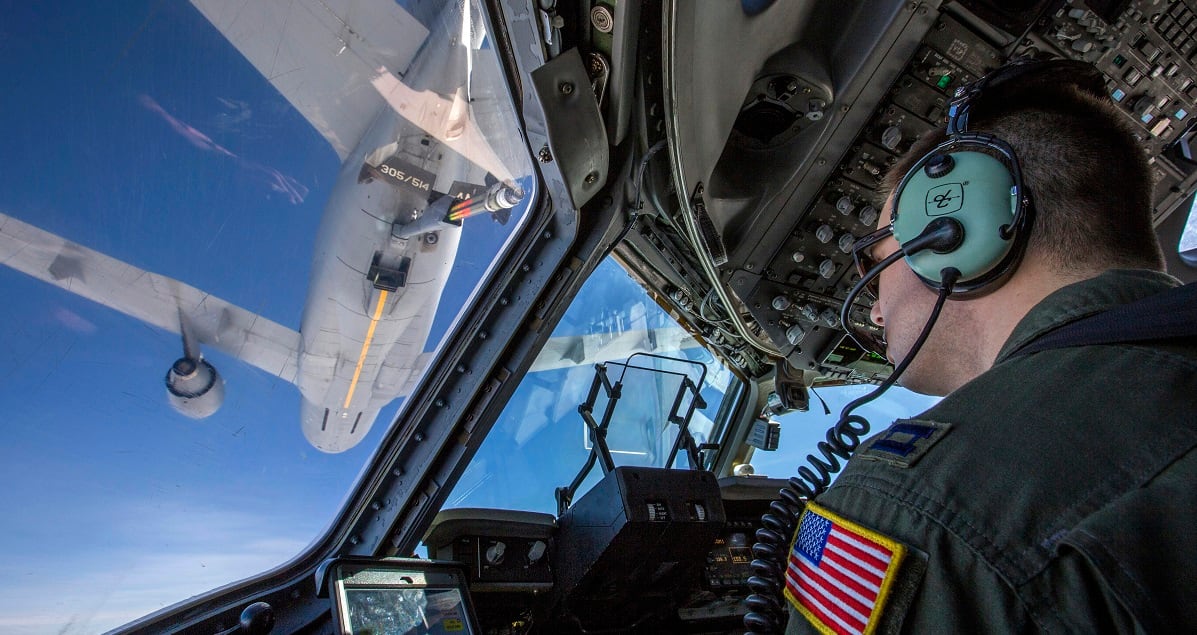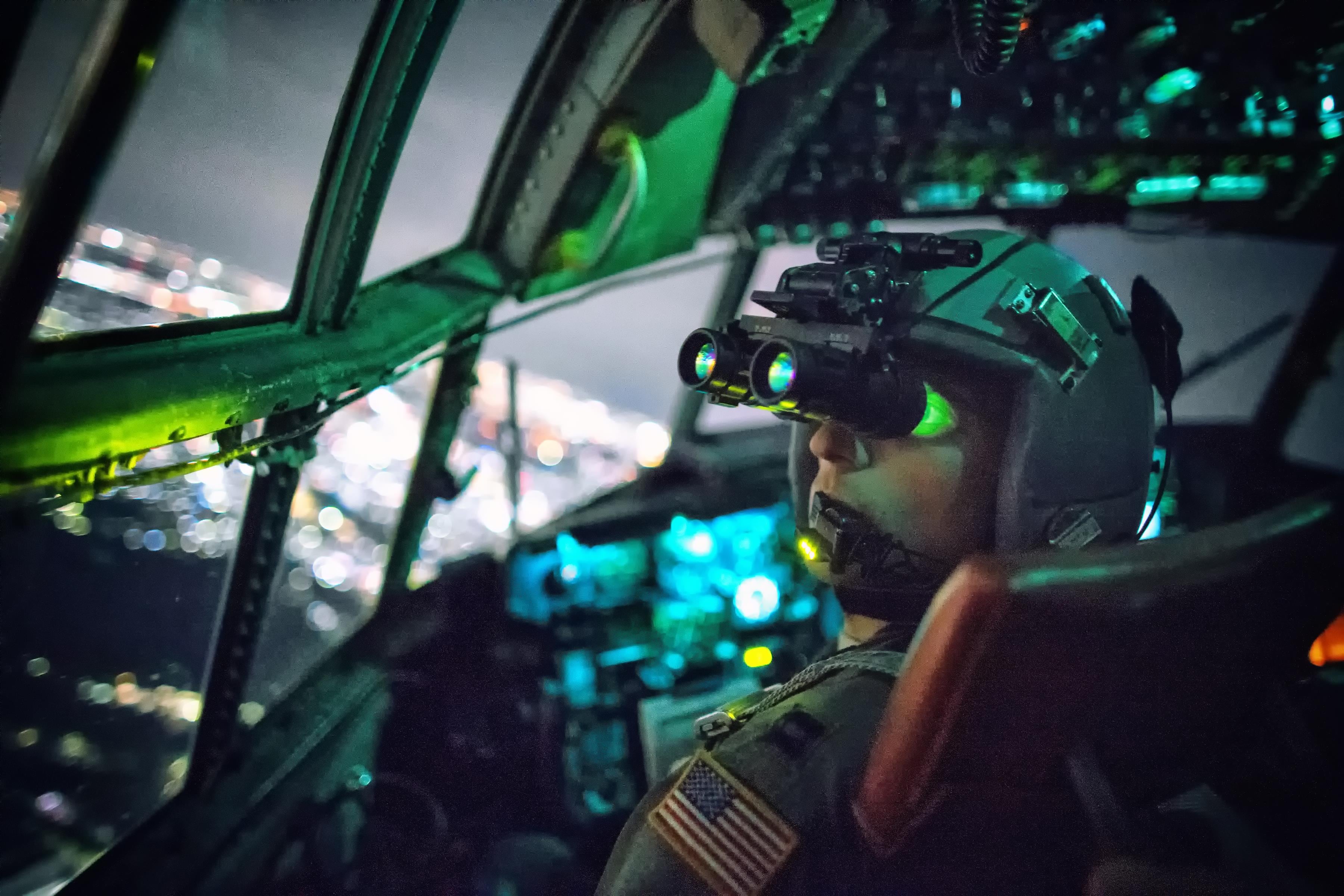Air Mobility Command has a problem. Commercial airlines are in the midst of a hiring spree, and AMC’s mobility pilots have exactly the experience companies like Delta and United need.
And there are signs that the problem is even more acute for AMC than the rest of the Air Force, which is also hurting for pilots. In a Friday interview, Brig. Gen Darren James, AMC’s director of operations, strategic deterrence and nuclear integration, said that from 2015 through 2017, mobility pilots accepted hefty aviation retention bonuses at about the same rate as the rest of the Air Force.
That changed in 2018, when the percentage of eligible mobility pilots signing up for the Aviation Bonus Program dropped sharply, to 37.9 percent. That’s a 6-percentage point decline from the previous year, and is now about 7 percentage points lower than the overall take rate for manned aircraft pilots across the Air Force.
“That’s concerning to me,” James said.
In recent years, AMC has tried to find out why their mobility pilots are leaving — and taken steps to correct those problems and encourage them to stay longer.
Some factors are apparent, and out of AMC’s hands, he said. The economy is doing better, and the private sector — particularly airlines — is hiring, which is typically when AMC has trouble with retention. The Air Force has been fighting in the Middle East and Afghanistan for 17 years now, and that continuous operations tempo puts strain on airmen and their families.
But AMC has also been surveying recently separated pilots to find out what pushed them to leave. And their responses have given AMC some ideas on how to improve pilots' lives, James said.
RELATED

One of the most common complaints from mobility pilots has been the 365-day deployments they were sent on, or were at risk of being sent on, that had nothing to do with flying, James said. When pilots are tapped for those year-long deployments to places like Al Udeid Air Base in Qatar or Afghanistan, they usually end up working with personnel from host nations, or U.S. allies, to build relationships and maintain continuity.
But a pilots grow weary of being away from home for a year to do non-flying jobs. That’s not why they signed up. So AMC has taken steps to reduce year-long deployments, from 47 to 26, AMC spokesman Col. Chris Karns said Dec. 10.
James said AMC cut some of those deployments entirely, and reduced others to 120 days or 179 days.
AMC also sought to increase pilots' so-called “white space,” or time available for training, professional development or home with their families when they’re back from deployments. The command is also trying to reduce the additional administrative support duties in the squadrons that pilots are commonly asked to do.
In early 2018, AMC began hiring contractors to handle scheduling, training and evaluations at squadrons and take the pressure off pilots, James said.
AMC is also exploring a flying-only technical track that allows pilots who aren’t interested in leadership roles to spend more time in the cockpit. This technical track would allow participants to skip traditional “stepping stones” designed to prepare them for leadership, former AMC head Gen. Carlton Everhart said earlier in the year.
When Everhart asked for suggestions last year on how to retain pilots, one of the most popular ideas was creating such a flying-only track.
But when it came time to sign up this summer, relatively few pilots showed interest. James said AMC received four application packages, and chose two pilots to take part in the program.
While AMC didn’t have a quota it hoped to fill for that program, James said he would have preferred more participants. He was not sure why more pilots didn’t try to sign up. The Air Force is now conducting a broader survey to see whether pilots are truly interested in such a flying-only track, and if so, what AMC must do to meet their needs. Air Force headquarters will likely provide more guidance on how to set up these programs when the survey is done.
Stephen Losey is the air warfare reporter for Defense News. He previously covered leadership and personnel issues at Air Force Times, and the Pentagon, special operations and air warfare at Military.com. He has traveled to the Middle East to cover U.S. Air Force operations.




